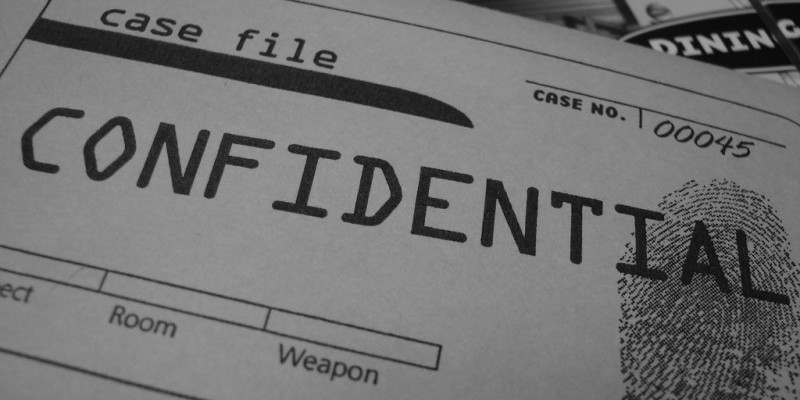 What Does a Start-Up Need to Know About Protecting its Confidential Information?
What Does a Start-Up Need to Know About Protecting its Confidential Information?
By Gil Rosen, Adv., June 2016
So your start-up is up and running and the company is taking its first steps in the business world:
- You have a small team keenly developing the next big thing. Most of the team are engaged as independent consultants rather than employees. They are receiving no pay or minimal pay, with promises of valuable equity for compensation.
- You are taking the initial steps in the world of marketing and promoting your product so that the market will be ready when the product is.
- You are talking with some interested parties about running a beta program.
- You are speaking with an established company abroad about the possibility of an exciting joint venture to target that company’s home market.
- You are in discussions with potential investors and you are working with a number of other consultants.
Clearly, your start-up will not get very far without sharing information with various parties, a vital element of doing business. However, some of the information is likely to be confidential to you and you would not want it to be misused. Similarly other parties are likely to want to share some of their confidential information with you. Nothing I have written so far is likely to surprise you, but there are many misconceptions concerning non-disclosure agreements and protection of confidential information. What follows is some clarity on this subject and some useful tips for more effective protection of confidential information.
Confidential information is any kind of information that has a degree of uniqueness and value to it and often created at great expense. Examples are unique ideas, commercial and financial information such as customer lists and technical information, such as technical drawings, production files and bills of materials.
While patents may sometimes be available, often the most important legal tools for protecting confidential information are non-disclosure agreements or “NDAs”.
Here are are some important points to keep in mind:
- NDAs are legally binding and enforceable agreements, though many people do not believe this to be the case. Getting the wording of an NDA right is therefore an important exercise to ensure that your information is properly protected.
- NDAs are only binding on the parties who signed them, regardless of any other wording to the contrary. Do not disclose confidential information directly to the other side’s agent for example as the agent will not be bound by the NDA unless they are a signatory to it. Likewise, sharing another’s confidential information with your own employees is fine, but sharing the information with independent contractors and other third parties could get you in trouble unless they enter into NDAs with you as well.
- As your start-up grows, the chances are that you will need to branch out of the local Israeli market and work with foreign companies. Often you will be required to sign NDAs that are governed by another country’s laws and only enforceable in that country’s courts. This is likely to increase your costs of any legal action arising from the NDAs.
- NDAs are normally valid for a limited period of time. Always make sure that the NDA has not expired before you disclose confidential information. Otherwise your information may not be protected.
- NDAs normally provide a period in which the limitations on disclosure will remain binding after termination of the NDA. The discloser must be sure that the information is not likely to still be valuable by the time this period expires. While a confidential price list may be relevant for no more than a couple of years, a secret formula or recipe may have a much longer shelf-life.
- Most NDAs require the confidential information to be clearly marked as confidential and there are normally conditions concerning the disclosure of information intangibly, such as in meetings or in demonstrations. It is therefore important to always make sure that these terms are reviewed and understood by the relevant personnel.
- A wonderful NDA is all very well, but if a party violates its terms, do you having the finance to fund a long court battle? It is much better to have a good NDA than to not have one at all, but one should always question how sensitive is the information you are about to disclose is and whether you need to disclose it at all.
It is therefore advisable for your start-up to have a global approach to confidentiality protection that takes the NDA into account, but does not solely rely on its existence. Perform a risk assessment with respect to your confidential information and the necessity to disclose it and to whom. Then determine an appropriate set of rules for all your staff to follow. For example:
- Very sensitive confidential information should only be disclosed in very limited circumstances and require the approval of senior management.
- Maybe only certain employees should have authority to disclose confidential information and after relevant training.
- Perhaps certain information should not be disclosed orally.
- Maybe some types of confidential information should only be disclosed in hardcopy form and not electronically.
- Have a process for tracking what confidential information has been disclosed and to whom and what has been received and from whom.
- Do not leave confidential information in the hands of recipients longer than necessary. Ask for its return or destruction.
- Be sure that your staff know the rules and adhere to them.
The above are only a small number of suggestions and by no means an exhaustive list, but all enhance the NDA.
To conclude, the importance of NDAs is often overlooked early on and time not taken to ensure that what is signed is suitable. Once signed, NDAs are then often over relied upon without much thought into the additional steps and considerations that should be taken to properly protect the confidential information. As confidential information is often a start-up’s most valuable asset, be sure to get the balance right.
Gil Rosen the owner and founder of Gil Rosen Law, providing corporate and international commercial legal advice to businesses of all kinds and sizes. This article should not be regarded as legal advice. If you have any questions or would like to receive more detailed advice in connection with this article, then please contact Gil Rosen at [email protected] or on +972.546.319913.




